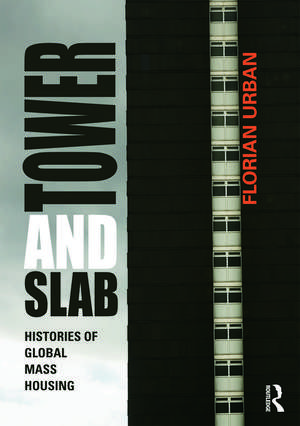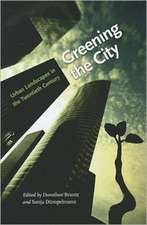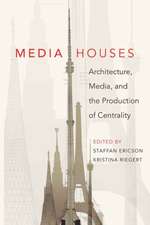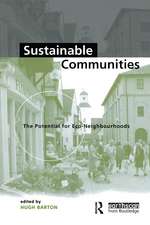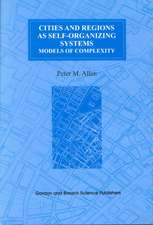Tower and Slab: Histories of Global Mass Housing
Autor Florian Urbanen Limba Engleză Paperback – 5 sep 2011
These differences show that design is not to blame for mass housing’s mixed record of success. The comparison of the apparently similar projects suggests that triumph or disaster does not depend on a single variable but rather on a complex formula that includes not only form, but also social composition, location within the city, effective maintenance, and a variety of cultural, social, and political factors.
| Toate formatele și edițiile | Preț | Express |
|---|---|---|
| Paperback (1) | 390.12 lei 6-8 săpt. | |
| Taylor & Francis – 5 sep 2011 | 390.12 lei 6-8 săpt. | |
| Hardback (1) | 1016.30 lei 6-8 săpt. | |
| Taylor & Francis – 5 sep 2011 | 1016.30 lei 6-8 săpt. |
Preț: 390.12 lei
Nou
Puncte Express: 585
Preț estimativ în valută:
74.65€ • 77.79$ • 61.81£
74.65€ • 77.79$ • 61.81£
Carte tipărită la comandă
Livrare economică 03-17 aprilie
Preluare comenzi: 021 569.72.76
Specificații
ISBN-13: 9780415676298
ISBN-10: 0415676290
Pagini: 222
Ilustrații: 61 black & white halftones
Dimensiuni: 174 x 246 x 10 mm
Greutate: 0.47 kg
Ediția:New.
Editura: Taylor & Francis
Colecția Routledge
Locul publicării:Oxford, United Kingdom
ISBN-10: 0415676290
Pagini: 222
Ilustrații: 61 black & white halftones
Dimensiuni: 174 x 246 x 10 mm
Greutate: 0.47 kg
Ediția:New.
Editura: Taylor & Francis
Colecția Routledge
Locul publicării:Oxford, United Kingdom
Public țintă
Postgraduate, Professional Practice & Development, and UndergraduateCuprins
Preface Mark Jarzombek Introduction 1. Social Reform, State Control, and the Origins of Mass Housing 2. Mass Housing in Chicago 3. The Concrete Cordon Around Paris 4. Concrete Slabs versus Stucco Ornaments in East and West Berlin 5. Brasilia, the Slab Block Capital 6. Mumbai – Mass Housing for the Upper Crust 7. Prefab Moscow 8. High-Rise Shanghai 9. Global Architecture, Locally Conditoned
Notă biografică
Florian Urban is Head of Architectural History and Urban Studies at the Mackintosh School of Architecture, Glasgow School of Art. From 2006 to 2008 he taught at the Center for Metropolitan Studies, Technische Universität Berlin. He holds a Master of Fine Arts from the Hochschule der Künste Berlin, an MA in Urban Planning from UCLA, and a PhD in History and Theory of Architecture from MIT. He is the author of Neo-historical East Berlin – Architecture and Urban Design in the German Democratic Republic 1970-1990 (Ashgate, 2009).
Descriere
Few urban forms have roused as much controversy as the modernist tower block. While on the surface the style appears universal, it is in fact as diverse in its significance and connotations as its many different cultural contexts. The comparison of the projects suggests that success does not depend on a single variable but rather on a complex formula that includes not only form, but also social composition, location, maintenance, and a variety of cultural, social, and political factors. Florian Urban looks at case studies from around the world, including: Chicago, Paris, East and West Berlin, Brasilia, Mumbai, Moscow and Shanghai
